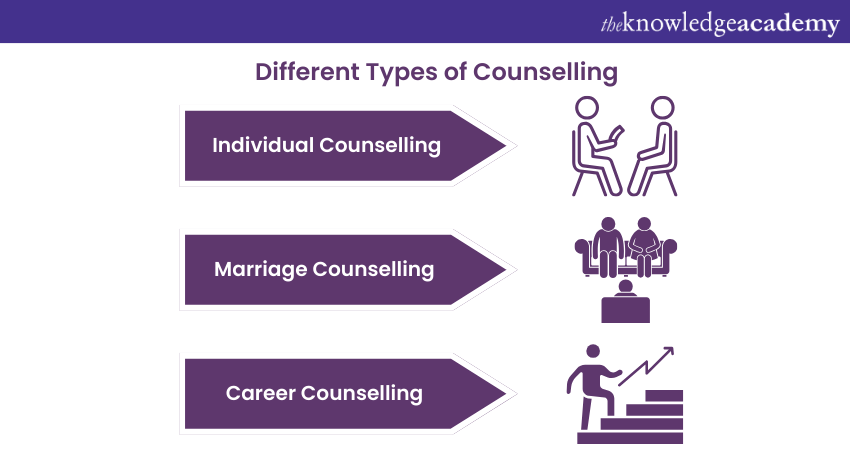Exploring the Benefits of Virtual Therapy in Modern Mental Health And Wellness Care
The increase of virtual therapy notes a significant change in psychological health treatment. It supplies boosted availability, permitting individuals from diverse backgrounds to look for aid without geographical constraints. Versatility in scheduling suits differing way of lives, while the convenience of home can promote openness. The ramifications of these adjustments expand past plain convenience. The developing landscape of therapy raises important concerns concerning its long-lasting impacts on client engagement and treatment end results.
Improved Access for All
Traditional therapy usually offers obstacles such as geographical location and scheduling conflicts, virtual therapy considerably boosts availability for individuals seeking psychological wellness support. By eliminating the demand for physical traveling, virtual therapy allows clients from remote locations or those with movement challenges to attach with certified specialists. This mode of therapy can reach underserved populaces that might do not have regional mental health resources, thus addressing variations in accessibility to care. Additionally, virtual systems can accommodate varied needs, supplying solutions in several languages and suiting different social histories. Clients can involve with a broader series of professionals, providing them with choices that line up with their specific needs and preferences. This boosted ease of access promotes a more inclusive setting, permitting individuals to seek help without the preconception commonly linked with in-person brows through. In general, virtual therapy represents a significant development in making psychological healthcare extra accessible to all.
Adaptability in Organizing Procedure

As virtual therapy remains to obtain traction, its fundamental flexibility in scheduling sessions proves to be a considerable advantage for lots of individuals. Unlike conventional in-person therapy, virtual therapy enables clients to choose session times that ideal fit their personal and professional commitments. This versatility accommodates those with requiring work timetables, family responsibilities, or other commitments that can make attending physical consultations testing.
Additionally, clients can conveniently reschedule or change their sessions as needed, reducing the stress connected with rigid visit systems. The accessibility of different time ports throughout the week, consisting of nights and weekend breaks, better improves accessibility. This versatility not just urges consistency present but likewise cultivates a higher dedication to the therapeutic process. Inevitably, the versatility in scheduling sessions represents a transformative shift in psychological healthcare, encouraging people to prioritize their well-being without giving up various other facets of their lives.
Convenience of a Familiar Environment
The convenience of a familiar atmosphere considerably enhances the efficiency of virtual therapy for several customers. Participating in therapy from the safety and security of their very own homes enables people to really feel even more comfortable, lowering stress and anxiety that might come with typical in-person sessions. This knowledge can facilitate open interaction, making it possible for clients to share their ideas and feelings a lot more freely.
In addition, the presence of personal products and the ability to control their environments can add to a feeling of security and leisure. Clients frequently report that remaining in a comfortable space enables them to concentrate extra on the healing procedure rather than the establishing itself.
Additionally, the informal nature of virtual sessions can help dissolve barriers that may exist in a typical workplace atmosphere, cultivating a deeper link with specialists. Overall, the comfort of familiar environments plays an important duty in boosting the healing experience and efficiency for numerous individuals seeking mental wellness support.
Bigger Series Of Restorative Alternatives
A broader series of therapeutic options ends up being readily available through virtual therapy, allowing customers to gain access to different methods that might not be viable in typical settings. This flexibility allows individuals to discover varied methods such as cognitive-behavioral therapy, mindfulness techniques, art therapy, and also specialized treatments like trauma-informed treatment or dialectical habits therapy.
Furthermore, customers can select from a more comprehensive spectrum of therapists, including those who focus on particular niche locations or certain populations, improving the likelihood of discovering a suitable match. Virtual platforms often provide accessibility to group therapy sessions, assistance communities, and workshops that may be geographically inaccessible otherwise.
This selection equips clients to participate in their recovery process according to their distinct preferences and requirements, possibly boosting motivation and dedication to treatment. Consequently, the landscape of mental healthcare ends up being much more inclusive and versatile, satisfying a wider selection of private experiences and obstacles.
Lowered Stigma Bordering Therapy
Accessing therapy through virtual systems contributes to a substantial reduction in the stigma commonly related to mental healthcare. By offering a discreet and personal environment, virtual therapy enables people to look for aid without the anxiety of being evaluated or identified. This privacy interest those who may otherwise hesitate to go after in-person therapy due to societal understandings bordering mental health and wellness.
Additionally, as the frequency of virtual therapy rises, it stabilizes the conversation around psychological wellness, making it an extra acceptable part of everyday life. Individuals commonly really feel a lot more comfortable discussing their experiences on the internet, advertising openness and decreasing feelings of seclusion. The availability of these solutions also motivates a wider group to engage with psychological wellness sources, cultivating a culture of support instead of pity. Ultimately, the increase of virtual therapy plays an important function in reshaping mindsets towards looking for help, adding to a more accepting society regarding mental wellness challenges.
Cost-Effectiveness and Price

Minimized Session Expenses
Numerous people seeking psychological wellness assistance find that virtual therapy substantially minimizes session expenses compared to standard in-person choices. The elimination of travel costs and time off work usually contributes to total savings. Additionally, numerous virtual therapists provide competitive prices as a result of reduced overhead expenses related to keeping a physical office. This shift in expenditure permits customers to gain access to top quality mental health and wellness solutions without the financial pressure that may include traditional therapy. For several, this cost makes it possible for more constant sessions, which can enhance therapy outcomes. Because of this, virtual therapy not only democratizes accessibility to mental health and wellness care however likewise provides a lasting financial model that straightens with clients' spending plans, making mental wellness assistance extra achievable for a larger target market.
Broadened Gain Access To Choices
While standard therapy frequently provides logistical barriers, virtual therapy greatly increases access choices for people looking for mental wellness treatment. By eliminating the requirement for traveling and allowing versatile organizing, virtual therapy fits diverse way of lives and dedications. This access is particularly beneficial for those in remote locations or with mobility difficulties. Additionally, the cost-effectiveness of virtual therapy decreases financial strain, making mental health and wellness services a lot more reachable. Lots of systems supply tiered prices or sliding scale charges, advertising affordability. Insurance coverage business significantly identify virtual therapy, further boosting its economic accessibility. Overall, virtual therapy not just expands the range of that can get treatment but also addresses economic barriers, making mental wellness support extra inclusive and obtainable for all.
Improved Connection of Treatment
Boosted continuity of treatment becomes a considerable advantage of virtual therapy in modern-day psychological healthcare. This approach allows patients to preserve consistent communication with their specialists, no matter geographical obstacles or scheduling conflicts. relationship therapy. The adaptability of virtual sessions promotes regular check-ins, which are vital for keeping an eye on development and adjusting therapy plans as essential
In addition, digital health documents and telehealth systems assist in smooth information sharing among care carriers. This interconnectedness assures that all professionals included in a client's treatment are upgraded on treatment developments, causing even more coordinated and efficient interventions.
Clients usually experience lowered stress and anxiety and raised interaction due to the convenience of accessing therapy from acquainted atmospheres. Such availability improves adherence to treatment routines, ultimately boosting outcomes - relationship therapy. To summarize, virtual therapy not only bridges spaces in psychological health solutions however likewise fortifies the continuity of treatment, an important component of effective healing partnerships
Often Asked Inquiries
How Does Virtual Therapy Ensure Privacy and Privacy for Clients?
The existing concern addresses the actions virtual therapy employs to shield client privacy. Making use of encrypted systems, safe and secure logins, and compliance with regulations like HIPAA, virtual therapy warranties that delicate info continues to be personal and inaccessible to unapproved people.
Can I Switch Therapists Conveniently in Virtual Therapy?
Switching therapists in virtual therapy is typically simple. Customers can communicate their need for a change with the platform, enabling versatility in discovering a much better suit without the logistical obstacles of in-person appointments.
What Technology Do I Need for Virtual Therapy Sessions?
To participate in virtual therapy sessions, a private normally requires a reliable net link, a computer or mobile phone with a video camera and microphone, and accessibility to a secure video conferencing platform defined by read more their therapist.

Are Virtual Therapy Procedure as Effective as In-Person Sessions?
Current researches indicate that virtual therapy sessions can be similarly effective as in-person sessions, relying on the individual's preferences and situations. Factors such as comfort and accessibility might enhance the general healing experience for some customers.
What Should I Do if I Experience Technical Issues Throughout a Session?
If technical concerns occur throughout a session, one ought to smoothly interact the trouble to the therapist, attempt to reconnect, or switch to a back-up approach. Persistence and flexibility are important in taking care of these disturbances.